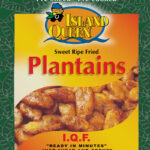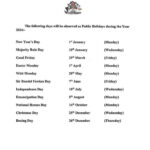Cases of the new coronavirus have been confirmed in China, the US, Canada and Brazil. The best way to prevent the spread is use the proper disinfectants to keep surfaces clean in your establishment and home. This applies to schools, institutions such as nursing homes, medical facilities, offices, public places like airports and government offices, hotels, restaurants etc.
BFS stocks several professional products that kill the coronavirus, as part of our portfolio of superior chemical cleaning products.
FROM OUR IN-HOUSE CHEMICALS EXPERT:
An outbreak of a new coronavirus that began in the Chinese city of Wuhan has already killed 81 people in China. Infections have been confirmed in many other countries. But of the nearly 3,000 people who have so far contracted the virus, the vast majority live in China.
The is the latest news in reference to China’s virus outbreak, and meanwhile in the United states a woman in her sixties was diagnosed a few days after she returned from Wuhan on January 13, 2020. She is now in stable condition and “doing well” after undergoing treatment, Chicago Department of Public Health Commissioner Dr. Allison Arwardy said.
There are at least five confirmed cases of the Wuhan coronavirus in the US, a number the US Centers for Disease Control and Prevention predicts will continue to climb.
Many of our customers have concerns as to whether this will hit the Bahamas, and what can they do to help protect against the this virus. Sysco Bahamas is the exclusive distributor of a line of professional quality chemical cleaners and we stock the products you need. National Chemical Laboratories (NCL) recommends the following products that we can suggest to our customers; hard surface disinfectant cleaners that effectively control coronavirus and other types of germs.
- Disinfectant Cleaner and Deodorizer – Neutral-Q
3548213 4/1 gal Disinfectant Deodorant Spray – Fortress
3552275 12/20 oz- Disinfectant Spray Cleaner – Avistat-D Ready to Use
3548241 12/1 qt
VIEW NCL PRODUCTS
USEFUL LINKS
USA Center for Disease Control (CDC): https://www.cdc.gov/coronavirus/index.html
Bahamas Ministry of Health statement https://www.bahamas.com/pressroom/novel-coronavirus-2019-ncov
THE BAHAMAS MINISTRY OF HEALTH OFFICIAL UPDATE
The Ministry of Health wishes to advise the public of the occurrence of a newly discovered novel coronavirus (2019-nCoV) which has been associated with an outbreak of pneumonia in Wuhan City, capital of Hubei Province in China. On 31st December 2019, the China Country Office of the World Health Organization (WHO) was informed of cases of pneumonia of unknown cause, detected in Wuhan City. A novel coronavirus (2019-nCoV) was identified as the causative virus by Chinese authorities on 7th January, 2020.
Coronaviruses (CoV) are a large family of viruses that cause illness ranging from the common cold to more severe diseases, such as, Middle East Respiratory Syndrome (MERS- CoV) and Severe Acute Respiratory Syndrome (SARS-CoV). These viruses are zoonotic, meaning that they are transmitted between animals and people. A novel coronavirus (nCoV) is a new strain which has not been previously identified in humans.
Cases have been reported in Wuhan City and provinces outside of Wuhan in China. Other countries including Thailand, Japan, the Republic of Korea and the United States have now reported cases. The latest reports indicate that there have been nearly 500 confirmed cases with 17 deaths.
The Ministry of Health will continue to monitor the occurrence of this novel virus with ongoing updates to the public.
Common signs of infection with this virus include:
- respiratory symptoms,
- fever,
- cough,
- shortness of breath and
- breathing difficulties.
In more severe cases, infection can cause pneumonia, severe acute respiratory syndrome, kidney failure and even death.
Standard recommendations to prevent the spread of this infection include:
- regular proper handwashing,
- covering mouth and nose when coughing and sneezing,
- thoroughly cooking meat and eggs and
- avoiding close contact with anyone showing symptoms of respiratory illness such as
- coughing and sneezing.
The international medical community, the World Health Organization (WHO) and the regional Pan American Health Organization (PAHO) are concerned that this new virus can result in a pandemic (a worldwide occurrence of the virus) as occurred with SARS and H1N1 avian influenza. Should the novel coronavirus (2019-nCoV) become more efficient at human-to-human transmission, the threat of a pandemic will increase dramatically. The global nature of travel and trade could increase the likelihood of the risk of rapid transmission around the world in a very short period of time.
Based on currently available information, however, WHO does not recommend any restriction of travel or trade. Today, at the conclusion of the first meeting of the International Health Regulations Emergency Committee the decision for declaration as a Public Health Emergency of International Concern (PHEIC) was deferred until a second meeting scheduled for tomorrow. At this time, it is expected that additional information from WHO experts on the ground in China would be considered.
Countries are encouraged to continue strengthening their preparedness for health emergencies in line with the International Health Regulations (2005).
Meanwhile, the Ministry of Health will continue to utilize the established interim guidelines published by the WHO on how countries can prepare for this virus. This includes how to monitor for sick people; test samples; treat patients; control infection in health centres; maintain the right supplies, and communicate with the public about this novel coronavirus.
The Ministry will continue to build on its existing national plans which implemented to address viruses, such as, SARS and Influenza H1N1 which occurred in a similar. Our aim as always is to limit the effect on the population and prevent social disruption as much as possible.
























